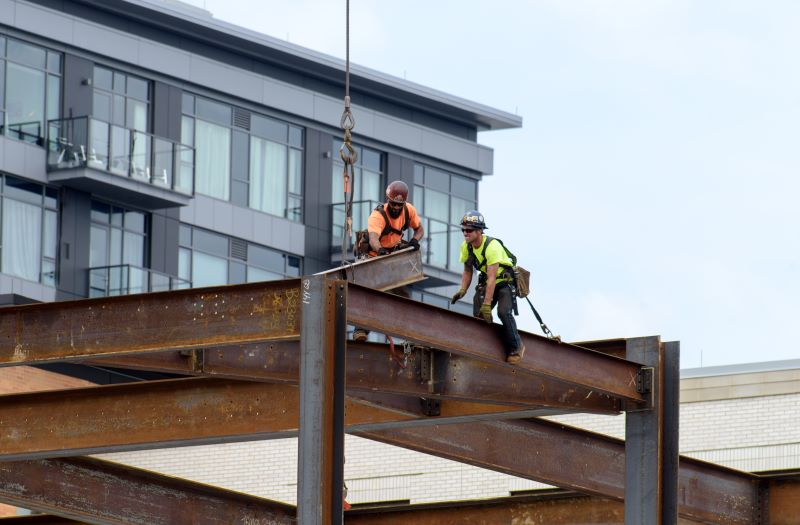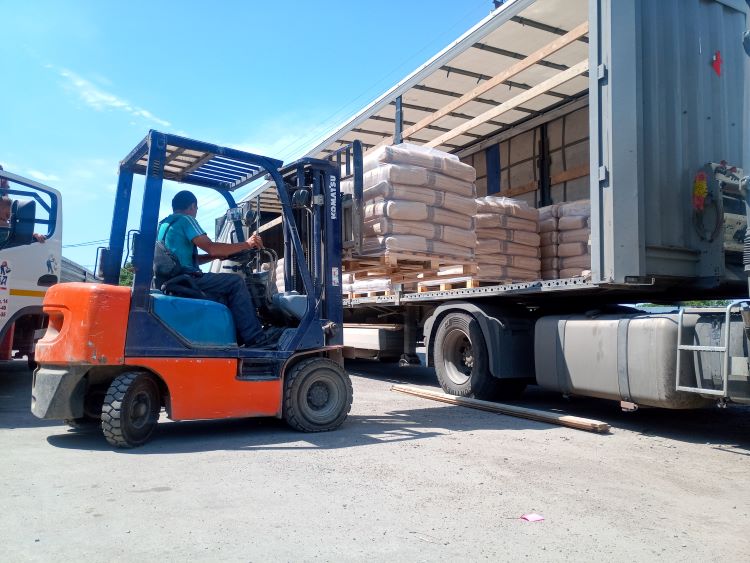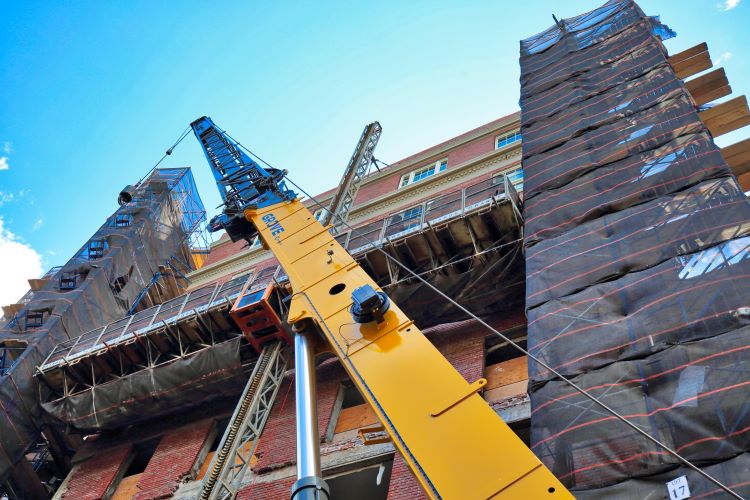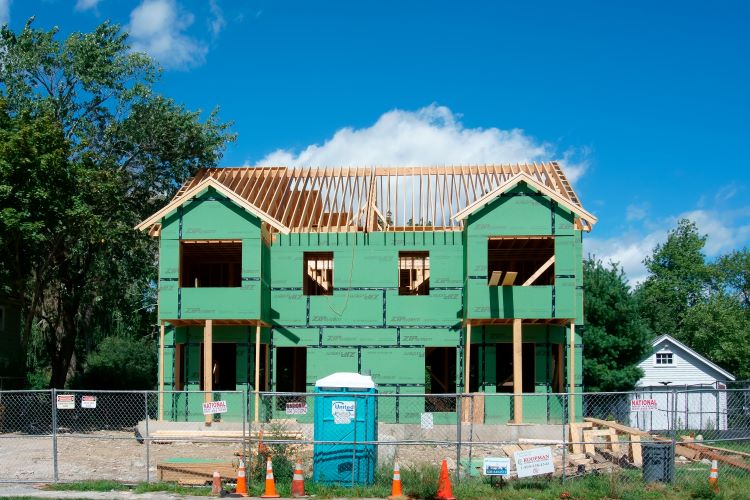
Without a doubt, 2022 will go down in history as one of the worst years for inflation in modern U.S. history. With the Consumer Price Index above 8% since March, we’re seeing the highest inflation levels in 40 years. Thanks to poor fiscal responsibility and highly questionable energy policies, rampant inflation and supply chain bottlenecks are starting to cripple our future supply of new products introduced into the Boston housing market.
The cost of building materials is increasing by a much larger margin than CPI. The current PPI for New Nonresidential Building Construction is up by 24% over the past year. That triples the price increase for consumer products (CPI). Housing supply in Boston is already at a critical shortage, and now developers are faced with even more fiscal barriers in creating new housing inventory for Boston’s growing population. We could be entering a new age of unprecedented scarcity of new housing options.
Why Are Prices For Construction Material Rising Faster Than CPI?
There are three primary reasons that prices for construction materials are increasing faster than consumer products:
1. Increased Fuel Prices Due to Poor Legislative Policies.
Construction materials are heavy, and they take up massive amounts of space when being transported. Transporting large and heavy construction materials and equipment requires vast amounts of fuel. It will cost a lot less for a carrier to ship a tractor trailer full of potato chips than it would a truck full of plywood. Accordingly, you can bet that the truck full of plywood is going to use significantly more diesel fuel to ship that load across the country than the potato chip truck. Put another way, you are not using a Tesla or Prius to move lumber to a job site. The most recent price data shows that prices of diesel gas have risen by 49.3% in the past year. This is one of the factors driving up the cost of construction materials. When gas prices surge, the cost of per square foot (PSF) goes up in lock step with these increases.
Higher fuel prices do not just affect construction. When our current administration shortsightedly declared a war on fossil fuel, they may not have understood the disastrous impact it would have on the economy. It’s quite possible they didn’t understand the construction process and how it would hamper the ability to create affordable housing. High energy prices hurt the workers of America in a significant manner. High gas prices also disproportionately hurt the poor and elderly living on a fixed income. There is no escaping a maligned or poor energy initiative.
Put another way, with CPI coming in at over 8 percent, you could say that the consumers across the nation are losing one month of pay in a twelve month period. That puts a strain on their wallets and slows down the ability to purchase general goods; never mind renovate or develop new properties. When costs go higher it is a natural inclination to stop spending and contract building new developments. This is why we are seeing a massive slow down in developers wanting to take future financial risks. Banks are also starting to pull back funding on all new projects. Developers are now being forced to look to private lenders and family offices which usually require a higher rate of return. When borrowing costs go up simultaneously with fuel costs; you see development deals start to unravel. Affordable energy prices are needed to bring down the cost of construction – it is simple math. There must a be a renewed focus on increasing the supply and development of fuel in America.
2. Supply Chain Disruptions.
Another critical factor affecting construction material costs is the disruptions to the global supply chain caused by the pandemic. We’re now more than a year removed from the end of harsh lockdowns here in the US. In China, however, their nonsensical zero-COVID policy is still in full effect. This is short-staffing major shipping ports in China which are primary arteries to the global supply chain.
As a result, manufacturers are still struggling to find shipping containers to transport their products by ocean freight, which is causing supply shortages for all goods, especially construction materials. When supply goes down, prices go up, and that’s exactly what contractors are experiencing not just in Boston, but across the country. Nearly all developers borrow money to get projects completed due to their massive costs; and when fit and finish work or appliances don’t show up for months; it drives up the carrying costs of the projects. Remember this, each month a project sits there unfinished, the more the costs increase as the developer pays interest and taxes on the property they are trying to rent or sell. The developer is not making money at that point; they are losing money during this process. Even a three month delay can wipe out nearly all their profit. When developers spend years trying to get a project completed only to break even or lose money – it impedes them from thinking about taking the risk to tackle another project. No one likes to work for free for 2-3 years to get a larger project to market.
So what does this all mean for Boston’s housing market? It will certainly restrict the ability of real estate developers to build new construction projects, which we desperately need in Boston. We are going to have to start rethinking how to get real estate development deals completed faster and with less impediments so that prices are reduced and affordability can be achieved. Every effort at increasing density and supply must be examined.
3. Labor Shortages
Too many people are still sitting on the sidelines and need to come back into the work force. The labor participation rate is lower than it should be especially with over 11 million available jobs. There has to be a renewed focus on getting people back to work. When misguided administrations offer financial incentives to stay at home and not work – the price for the people working goes up. The construction industry is clamoring for more workers and skilled labor is difficult to find which also drives up the price. Skills atrophy when people stay at home rather than engage in fruitful work.
How Does Rising Inflation Affect New Construction?
All of these price increases make it much more expensive for developers to create new housing inventory. Building materials make up anywhere from 35% to 60% of the total cost of a new construction project. Ductile pipes and fittings increased by 25% over the past year. Tar mixtures and asphalt surged 14% over the same time span. When a developer puts together their cost material list in an excel spreadsheet and calculates the total; they are often shocked at how much the prices increased. Numerous landlords and property owners say they are seeing 30% increases on anything from small spruce ups to kitchen renovations.
What’s worse is that there doesn’t seem to be a solution in sight for lowering construction costs because our current administration believes that eliminating fossil fuels is more important than affordable housing. Bad energy policy increases the cost of construction and makes it harder for the average American to buy a property. There is simply no way to have price and wage controls put into place on every single industry – the results would be total disaster for our national economy.
In a press release from the National Association of Home Builders, NAHB Chairman Chuck Fowke reiterated the fact that higher material costs and supply shortages are contributing to longer timelines to complete construction projects. In Boston, housing inventory is very scarce and demand is still strong, which is why new construction is a critical component to balancing our housing economy. Creating new housing developments is already challenging in a dense and highly regulated city like Boston.
Construction materials aren’t the only cost that is soaring for construction companies. Both skilled and unskilled labor are major costs for developers, and both are in short supply. According to the NAHB, roughly 2.2 million laborers will be needed to meet construction demand over the next three years. Here in Boston, our unemployment rate has yet to return to pre-pandemic levels, and developers are still struggling to find workers. This has pushed the cost of labor up for contractors, making matters even worse.
Inflations’ Effect on Boston Multifamily Housing
Local multifamily investors will be paying close attention to the Federal Reserve’s response to inflation, and not just to see if home prices dip in Boston. Higher interest and inflation have a direct negative effect on a household’s purchasing power. Considering the significant increase in costs of development and maintenance for multifamily owners, the idea of affordable housing in Boston seems far from reach.
If inflation persists, developers will be forced to pause projects to reevaluate their financial forecasting. Boston already saw new construction grind to a halt during COVID, which was a primary cause of the unprecedented housing supply shortage we experienced in 2022. If economic conditions continue to deteriorate, we may see many developers walk away from projects simply because the math doesn’t add up. This would further contribute to the historic shortage of housing units in Boston, pushing prices up further for everyday families.
Simply put, it is both irrational and irresponsible to think that hampering fossil fuel development in the United States could be a good thing for our economy and it’s workers. Quite the contrary, with more people digging into their savings and now higher credit card balances, it could create a dependent renter class that will be limited in upward mobility because of increasing costs. Trucks require a significant amount of fossil fuels to move and transport materials. We simply do not have any electric vehicles that can currently meet the demands of the construction and renovation industry.
Moreover, large construction vehicles are probably more than a decade away before they could do the job of current fossil fuel vehicles within the construction industry. Nothing is more cost effective and drives down construction prices faster than getting back to a sensible energy policy of ample fossil fuels at affordable prices. This will help create more housing and more options for upward mobility and home ownership.
The Boston Real Estate Market Amid Increasing Inflation
The Boston real estate market is one of the most competitive in the country. Supply has been unable to keep pace with demand as the metro has grown over the past decade. This is the main driver of the record price growth for Boston real estate during that span. However, as the Fed has raised interest rates, we’ve already seen the Boston housing market react. Half way through 2022, we saw housing supply increase by +44.2% year-over-year, and total property sales are down -3.82%. Earlier this week, the Bureau of Labor and Statistics announced another abysmal CPI of 8.2%. This prompted the 5th rate hike of 2022, which will further cripple production and consumer purchasing power. With the most recent horrific CPI numbers coming in this week; you can all but assume another rate hike is imminent. The inflation genie is not going back into the bottle until we get gas prices back to the 2 dollar range we had in 2019. The Fed will continue to step on interest rates but it may overshoot it’s mark with demand destruction and create a massive recession. Much of this could be avoided with a focus away from demand destruction to a keener focus on supply production of energy.
In terms of our current Boston real estate market, when supply grows and demand drops as it’s doing now, prices are sure to come down in the near future. It is an absolute mathematical fact that the longer inflation runs its course, the poorer people become over time. People start dipping into their savings and start using credit cards more. Inflation erodes purchasing power. If we do not get inflation under control soon we could be in for very turbulent times going into 2023 and 2024.
A major priority for Boston right now is the creation of additional housing supply. We could see a downturn or delay in new permits and construction starts in Boston during 2023-2024. It is incumbent on our current administration to do everything it can to facilitate additional domestic fossil fuel production to not only increase jobs but to also lower costs for all Americans and reduce inflation. We will continue to cover these trends as they develop.

Demetrios Salpoglou
Published September 22, 2022
Demetrios has pulled together the largest apartment leasing team in the Greater Boston Area and is responsible for procuring more apartment rentals than anyone in New England – with over 130k people finding their housing through his services. Demetrios is an avid real estate developer, peak performance trainer, educator, guest lecturer and motivational speaker.














